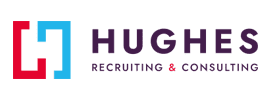A recent study found that women make up 41.9 percent of the global workforce.¹ This statistic includes data from both STEM and non-STEM-related fields. Despite this, many still experience gender discrimination at work.
As a female professional, what can you do to navigate male-dominated industries and advocate for your career? This article will delve into actionable tips you can adapt to push your professional journey forward.
Common Challenges Women Face in a Professional Setting
The workplace has systemic barriers that make it harder for women to grow professionally. Although there has been progress, many women still face challenges because of their gender. Here are some examples of these challenges:
1. Workplace Bias
Workplace biases can significantly impact a woman’s professional experience. These biases are often subtle yet damaging. People can show bias by assuming something about a woman’s capabilities or potential.
For example, in the technology sector, a female software engineer might consistently find her technical recommendations criticized or observed more heavily than those of her male colleagues. During project meetings, her suggestions might be overlooked or brushed aside, only to be praised when repeated by a male team member.
These unconscious biases can create an environment in which women must work significantly harder to prove their competence and be taken seriously. This can ultimately affect their career progression and workplace satisfaction.
2. Lack of Representation
When women do not see themselves reflected in leadership positions or senior roles, it can significantly impact their sense of belonging and potential for advancement.
A young female employee might struggle to find mentors or role models who share her experiences. This can make her career trajectory planning more challenging since she has no guidance or no one to mirror.
The absence of diverse representation can lead to a feeling of isolation. It can subtly communicate that certain career paths might be less accessible or welcoming to women, potentially discouraging future generations from entering male-dominated fields.
3. Discrimination
Discrimination remains a significant barrier that women continue to face in professional environments. This can range from prominent forms of discrimination to more nuanced challenges that undermine women’s professional opportunities.
For example, a woman might experience direct discrimination through unequal pay. She may also be passed over for promotions or face inappropriate comments about her potential to balance work and family responsibilities.
Such discriminatory practices not only limit individual career growth but also encourage these inequalities as the norm. If not addressed and resolved properly, this can prevent women from achieving their full professional potential in the long run.
7 Tips to Navigate Male-Dominated Industries
Aside from your skills and work experiences, succeeding in an industry is only possible when you work on personal factors that affect your performance. In order to help you navigate a field where you’re in the minority, Hughes Recruiting has created this list of career advice and tips you can apply to drive your profession:
1. Boost your confidence
You need to recognize that confidence is a skill that can be cultivated rather than an innate trait. It requires intentional and consistent self-development. Remember that you deserve to take up space in your professional environment.
To boost your confidence, try tracking your achievements in a professional journal. Document every successful project, positive feedback, and career milestone you reach. Challenge yourself to speak up in meetings and volunteer for high-visibility projects. By doing so, you’re giving yourself a picture of your achievements, as well as showing those around you what you are capable of.
Read more: A Healthy Approach to Job Hunting: 5 Tips for Staying Positive Amidst Rejections
2. Practice positive self-talk
The conversations you have with yourself matter more than you might realize. Negative internal dialogue can influence both your performance and your perception of your career.
When you catch yourself thinking negatively about your own capabilities, make a conscious effort to reframe those thoughts. Replace negative internal dialogue with supportive statements. For example, instead of thinking your co-workers are more experienced than you are, acknowledge your capacity for continuous growth and learning.
Take the time to create a list of personal affirmations that you can read daily. Focus on your strengths, achievements, and potential. Be realistic when creating this since it’s meant to guide your opinions about yourself. If done correctly, it can empower you to pursue opportunities rather than stay stagnant in your career.
3. Balance assertiveness and respect
Communication is vital, especially in competitive professional environments. How can you advocate for your career as a woman? Consider being assertive.
Assertiveness doesn’t equate to being aggressive. Instead, it means being clear, confident, and professional at work. When presenting ideas, always use decisive language. Avoid words like “I think” or “maybe.” This can help you gain the authority your role deserves.
To become more effective, balance your assertiveness with respect. This can be done by listening actively and acknowledging others’ perspectives. The key to this tip is to be firm in conveying ideas while remaining collaborative and open to dialogue. This approach can help you gain credibility, build positive workplace relationships, and effectively influence decision-making processes.
4. Build emotional resilience
Building emotional resilience is crucial for navigating challenging professional environments. It involves developing the ability to adapt to stressful situations and bounce back from setbacks. It’s also an important ingredient in maintaining a positive and solution-oriented mindset.
How can you build this resilience? The key is to cultivate it through practices that work for you. For instance, people may find mindfulness techniques helpful. Meanwhile, some prefer regular self-reflection, while others seek professional support.
By strengthening your emotional resilience, you can improve both your mental health and your capacity to adapt to challenging work environments. You may also find it easier to maintain professional performance even under scrutiny or pressure.
5. Cultivate your personal brand
The best way to empower yourself as a female professional is to become your own advocate. Take advantage of the power of a personal brand. Position yourself as an individual with unique skills and perspectives to offer.
Going beyond previous positions and skillsets, strive to create a distinctive professional identity. Communicate your expertise through high-quality products or services. Embrace opportunities to publish your thoughts or speak at conferences. Along with maintaining a professional social media presence, this can cultivate your brand as a valuable professional within your chosen industry.
Read more: Your Career’s Golder Ticket: 17 Skills That Will Open Doors
6. Communicate career goals
Your career path is intentional, not accidental. Prove this to employers and colleagues by clearly communicating your career goals.
- Start by creating a detailed, five-year career plan. Make it a point to outline your short-term and long-term professional objectives. If possible, you can also include a target date for your milestones.
- Schedule regular meetings with your manager to discuss your plan. Be explicit about your aspirations.
- Show your commitment to career development by embracing opportunities that can get you a step closer to your goals.
7. Seek mentorship
Find professionals who have navigated similar challenges to the ones you’re experiencing. By seeking mentorship, you’re already creating opportunities for guided professional development and strategic networking.
- Approach potential mentors respectfully once you have a clear understanding of what you’re seeking.
- Prepare specific questions to show that you value both their time and expertise.
- Consider multiple mentors for different aspects of your professional journey. This may include your technical skills, leadership development, or work-life balance.
- Strive to build genuine relationships with your chosen mentors.
- Maintain professionalism at all times.
The end goal of this tip is to gain invaluable insights, career guidance, and professional connections that can accelerate your career growth.
Drive your success with Hughes Recruiting & Consulting.
Turn your job search into a success story. With a candidate satisfaction rate of 96 percent, Hughes Recruiting & Consulting is a staffing firm that values your goals. We prioritize both your skills and aspirations when connecting you to leading employers who need your capabilities.
Want to learn more about working with us? Start a conversation with us today!
Reference
- “Global Gender Gap Report 2023.” World Economic Forum, 20 Jun. 2023, www.weforum.org/publications/global-gender-gap-report-2023/in-full/gender-gaps-in-the-workforce/.

























